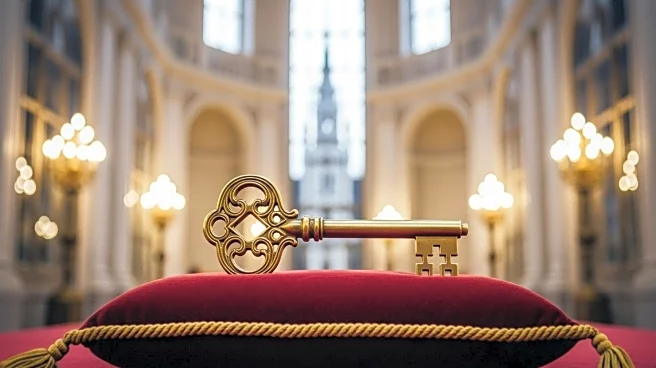Brussels, the capital of Belgium, is renowned for its rich legacy in diplomacy and culture. As the de facto capital of the European Union, it hosts numerous EU institutions, making it a pivotal center for international politics. The city's legacy is deeply intertwined with its role as a hub for political activity, hosting ambassadors and diplomats from around the world. This legacy is not only political but also cultural, as Brussels is a melting pot of French and Flemish communities, contributing to its unique cultural tapestry.
Scope of Legacy
Brussels' legacy is vast, encompassing its role as a political and cultural center. The city is home to the European Commission, the Council of the European Union, and the European Council, solidifying its status as the EU's administrative heart. Additionally, Brussels hosts NATO headquarters, further cementing its position as a global diplomatic hub. The city's cultural legacy is equally significant, with its diverse communities and rich history contributing to its vibrant cultural scene.
Pivotal Contributions
Brussels has made numerous contributions to international diplomacy and culture. Its hosting of EU institutions has facilitated significant political decisions impacting Europe and beyond. The city's cultural contributions are evident in its architecture, museums, and festivals, showcasing its rich heritage. Brussels' role in fostering dialogue and cooperation among nations is a testament to its pivotal contributions to global diplomacy.
Enduring Influence
The influence of Brussels extends beyond its borders, impacting global politics and culture. As a center for EU decision-making, the city plays a crucial role in shaping European policies. Its cultural influence is seen in its art, cuisine, and festivals, attracting visitors from around the world. Brussels' enduring influence is a reflection of its ability to adapt and thrive in a changing global landscape.
U.S. Relevance
For U.S. audiences, Brussels represents a key partner in international diplomacy and trade. The city's role in the EU makes it a significant player in transatlantic relations, impacting policies and agreements between the U.S. and Europe. Brussels' cultural offerings, including its art and cuisine, provide American visitors with a unique European experience, highlighting the city's relevance to U.S. audiences.

 Discover Daily
Discover Daily 






